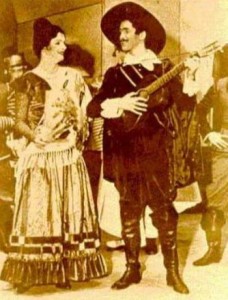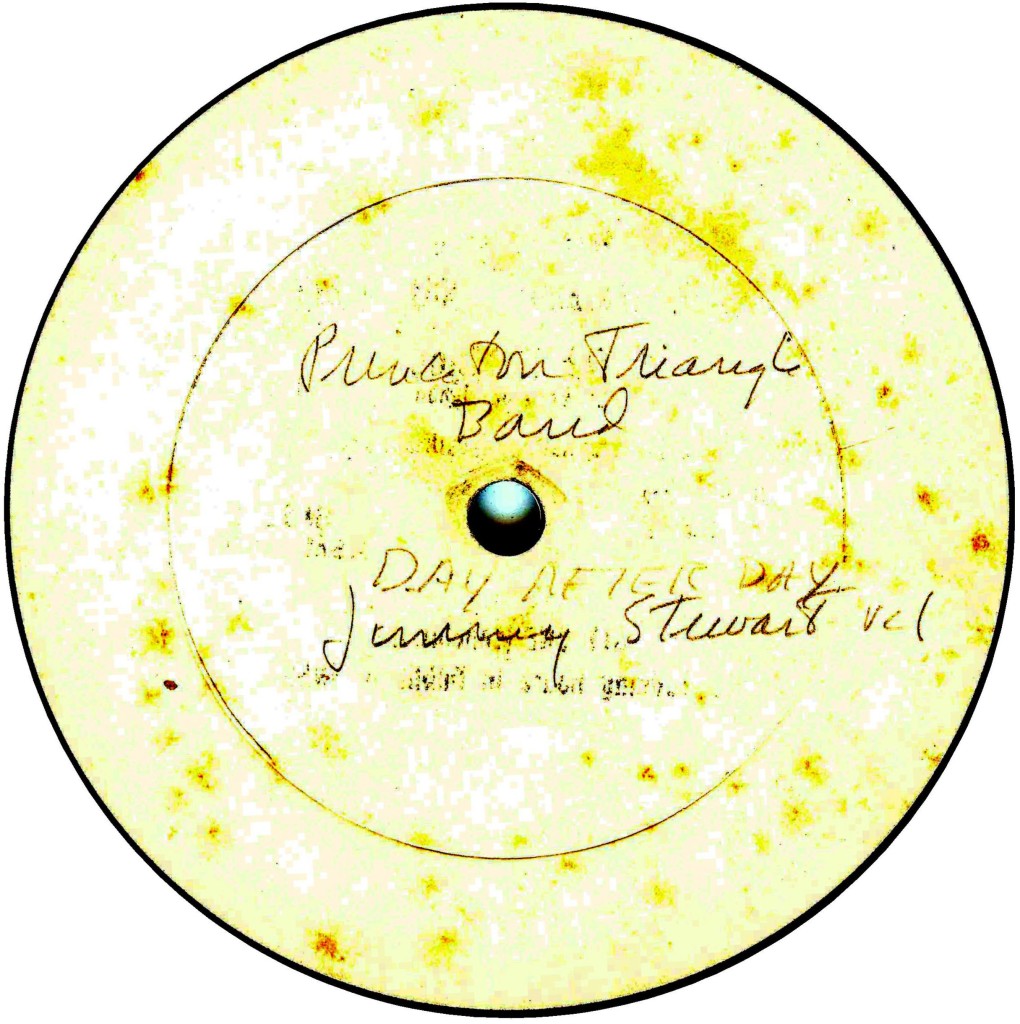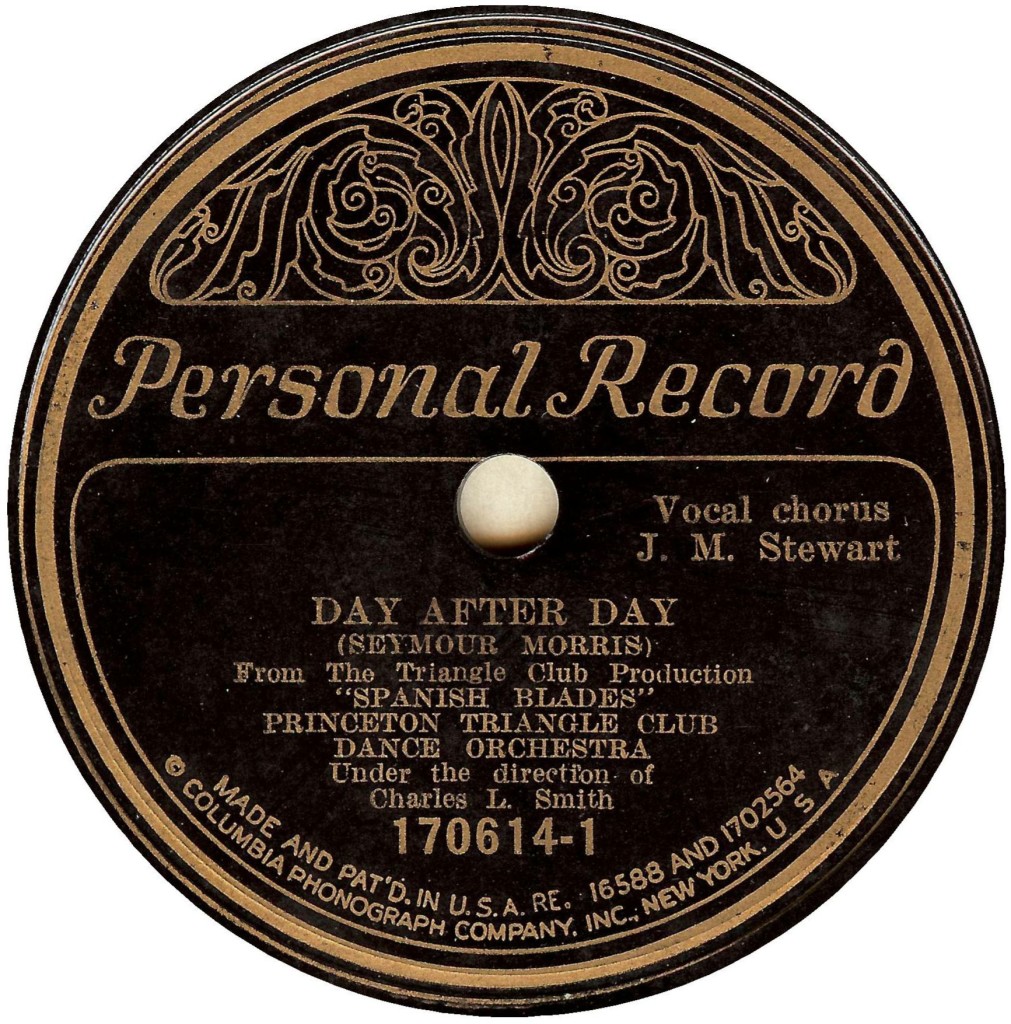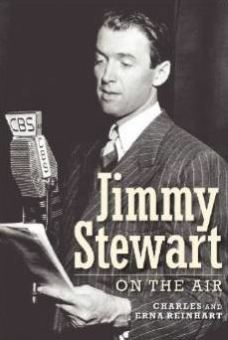As most Stewart fans know, he was a member of the Triangle Club, a theatrical troupe, at Princeton University. Each school year, the club produced an original student written musical and took it on a national tour. For the 1931-1932 school year, that musical was Spanish Blades. In the play, Stewart played the role of Mr. Alfonso, while his wife was portrayed by D.S. McMillan (because the Triangle Club was a strictly male organization, Mrs. Alfonso was actually a man). The photo below shows Stewart and McMillan in costume on stage:
The closest the traveling play got to Stewart’s hometown of Indiana, PA, was Pittsburgh and his parents went there to see it. Here is a small article which appeared in the January 4, 1932 edition of the Indiana Evening Gazette:
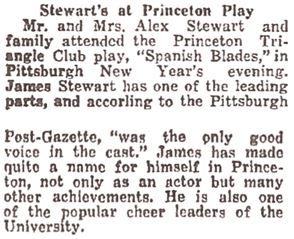 As you can see, the original writer for the Pittsburgh Post-Gazette liked Stewart’s singing voice.
As you can see, the original writer for the Pittsburgh Post-Gazette liked Stewart’s singing voice.
Possibly because of this, when the time came to record songs from the play, one of Jimmy’s was chosen.. The song picked was Day After Day, which was written by Seymour Morris. The recording session took place at Columbia Records Studio in New York City. There is some confusion as to the recording date. Some sources list it as October 12, 1931, while an article in E-Discographer #2 (January, 2001) gives the date as December 10, 1931, as shown below:
 The December date is also stamped into the run-off wax of a copy of a test pressing which we possess. A scan of the label of that test pressing is shown below:
The December date is also stamped into the run-off wax of a copy of a test pressing which we possess. A scan of the label of that test pressing is shown below:
The label contains only the pertinent information – “Princeton Triangle Band – Day After Day – Jimmy Stewart vcl.”
When the song was released as a Columbia Personal Record (10-inch, 78 RPM), the label showed much more information:
Jimmy became J. M. Stewart and the full name of the orchestra and its director were given. So what did it sound like? Here’s Day After Day, recorded directly from the original 78 RPM record:
The B-side of the single is titled Make Time and Stewart was not involved in its recording.
